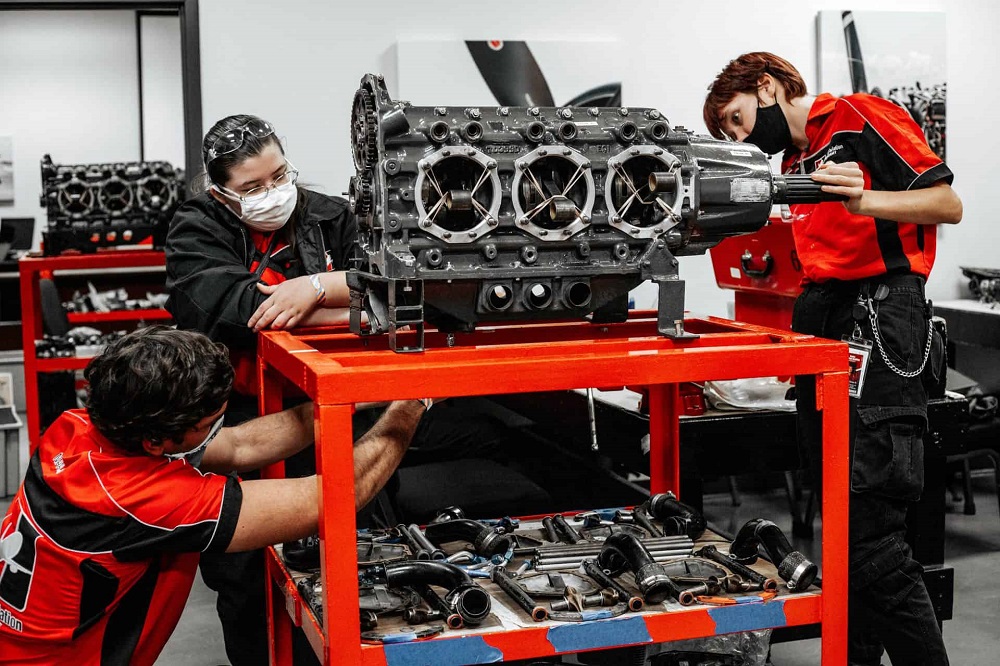Who is a Mechanic?
A mechanic works on small vehicles and cars, doing maintenance, diagnostic testing, repairs, and inspections. Engines, drive belts, gearboxes, and electrical systems like steering, brakes, and accident-avoidance systems are among the things they work on.
The basic responsibilities of a mechanic are to perform routine vehicle inspections and maintenance. There isn't a day that goes by when they aren't inspecting and diagnosing defective automobiles, detecting problems, and devising solutions. Mechanics may need to disassemble the engine or other elements of the car, depending on the damage or problem that has arisen, to check the working or malfunctioning components more closely.
A mechanic is mostly hired for proper automobile advice. Whether or not you fix their automobiles for them, your expertise may save them a lot of time and money. Over time, your knowledge will grow, and putting that information to good use is one of the many things that makes this job gratifying.
Mechanic will be responsible for procuring new components and performing repairs if there is serious damage to any part of the vehicle. The experts in the field have access to the necessary equipment, such as hydraulic lifts, to mount the car so that the under body can be accessed.
Roles and Responsibilities of Mechanics
The major responsibility of a mechanic is to work on and test automobiles before they leave the site. They do routine maintenance and status checks, as well as follow particular instructions for various engines and vehicles.
Here's A Partial List of The Duties That Mechanics Must Perform Daily:
- Checking and replenishing key fluids (such as motor oil, coolant, and brake fluid), as well as examining and changing filters as needed.
- Examining battery and electric systems of cars.
- Using highly-functional tools and software to conduct a comprehensive and full analysis of the vehicle's condition.
- Inspecting the brakes-tire inspection, including air pressure, alignment, and tightening loose nuts and bolts.
- Dismantling the engine to clean or search for faulty parts, making general and specialized repairs, and replacing faulty parts.
- Using specialist equipment removing defective pieces (e.g., wrenches, screwdrivers, pliers, and hydraulic lifts).
- Replacing spare parts and checking functionality of new vehicle elements.
- All vehicle repairs must be documented and reported to the employer or client.
- Creating a budget for the anticipated repair costs and keeping track of all the components and parts that have been modified, fixed, or replaced.
- Providing customers with a bill that details all purchases and fixes made.
- When conducting repairs, follow all safety precautions and regulations, including wearing all essential safety equipment (e.g., safety goggles, gloves, and suits) to avoid harm.
- Using large or risky machinery and tools following safety rules (e.g., hydraulic lifts, power tools, and welders).
- Keeping track of all transactions, purchases, and services rendered, as well as all administrative chores.
- Taxes must be paid and financial documents must be submitted to the appropriate government agency.
Final Words
At the end of the day, when you are planning to hire mechanics, to avoid unnecessary harm, make sure your chosen mechanic strictly adheres to all safety precautions while doing the car inspection. For the safety of both personnel and clients, this procedure should be carried out with utmost caution.
They are also responsible for supplying clients with a report detailing all repairs made, in addition to doing the job themselves. Depending on the business they work in or the expectations their employer has for sales monitoring, some must have a sales mindset to up sell items and services.

Comments
Post a Comment